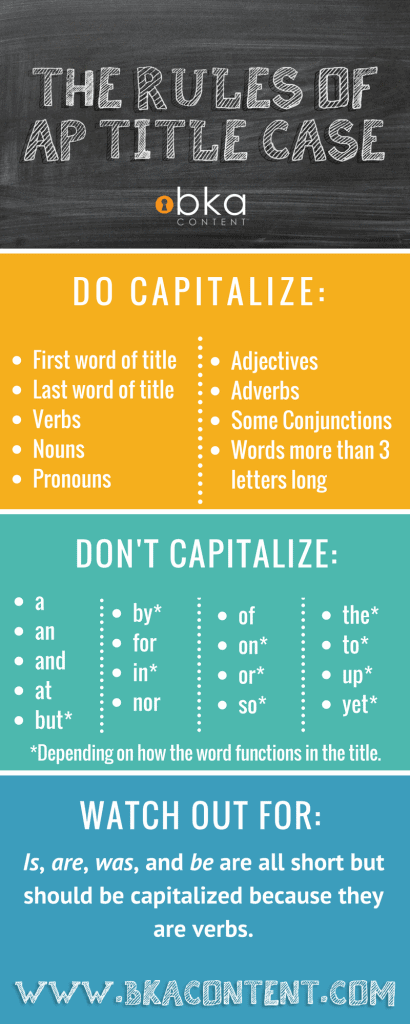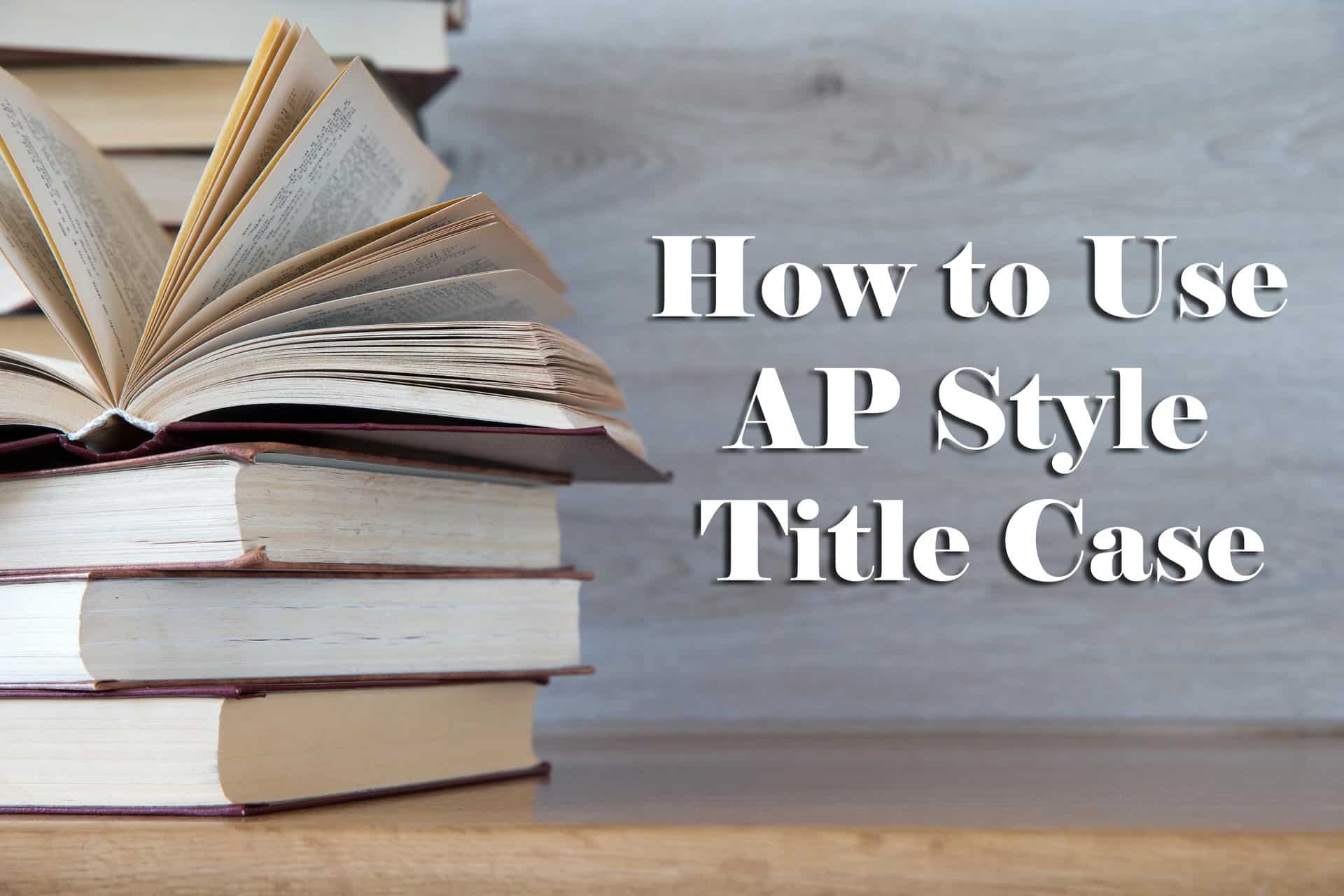After spending time and energy coming up with the perfect title for your article, blog post or story, do you really want to take even more time debating how to format it correctly? For instance, what words do you capitalize in the title of an SEO blog? Which words are not capitalized in a title on a composition title? Is “your” capitalized in a title? Is “and” capitalized in a title?
When writing for an internet audience, using a standardized title case can help you avoid criticism and confusion. AP style title case has a few easy rules that will help showcase your title. (Note: These rules are the exact same for APA style, the only difference being that the Associated Press does not recommend the use of title case for newspaper headlines, but rather sentence case.)
To master AP title case, learn the capitalization rules below. If you want a simple cheat sheet to have at your side, feel free to download the “Rules of AP Title Case” infographic we’ve created at the bottom of the page.
Capitalize the Principal Words in a Title
What words do you capitalize in a title? You should capitalize all of the principal words. The principal words of a title include the first and last words of that title, which you should always capitalize. You should also capitalize all verbs (including infinitives), nouns, pronouns, adjectives, adverbs and some conjunctions. Finally, capitalize every word that is more than three letters long.
Title Capitalization Examples:
- Creating the Perfect Centerpiece for Your Party
- Increase Curb Appeal With New Shutters
- How To Look For a Paid Internship
In the last example, note that the entire verb phrase “to look for” is capitalized.
What Not To Capitalize in a Title
So what words are not capitalized in a title? The short answer is don’t capitalize articles, prepositions or conjunctions that have fewer than four letters. That leaves a pretty short list of words that often aren’t capitalized*:
| a | for | so |
| an | in | the |
| and | nor | to |
| at | of | up |
| but | on | yet |
| by | or |
*Remember to focus on how a word functions in the title to determine if it should be capitalized. For example, “yet” should be capitalized while acting as an adverb, but lowercase while acting as a conjunction.
Pay Special Attention to Prepositions
When you write titles that contain prepositions, your word processor will likely tell you that you should leave words like “with,” “about,” and “around” lowercase. Defiantly look past the squiggly line indicating a potential error, and remember that in AP title case, prepositions with four or more letters should be capitalized.
Examples of Capitalizing Prepositions in a Title:
The Dangers of Hiking Without Proper Shoes
Working Your Way Around Office Politics
X Questions about the Importance of Renters Insurance
X What’s Lurking beneath Your Home?
Capitalizing The Verb “Is”
Many writers make the error of leaving “to be” verbs lowercase. Even though “is,” “are,” “was,” and “be,” are all short words, they should still be capitalized in a title because they are verbs.
Examples Capitalizing the Verb “Is”:
Why Sunless Tanning Is a Hot Trend
Satin Sheets Are a Luxury You Can Afford
X How to be More Aware of Bank Fraud
X Simple Reasons Why I am Never Bored
Title Capitalization Conclusion
The title of your article or blog post is the first thing that your readers will see. By using an intriguing title and formatting it correctly, you can draw your readers in and build their trust. Throughout your article, make sure that the headings within the body of your work follow the same formatting guidelines as your title. When you do this, you are well on your way to creating an article that is both fun to read and visually appealing.
If you have any comments on the subject (or funny examples), leave them below! Click here if you’d like to freshen up on some more AP Style rules.
Rules of AP Title Case Cheat Sheet:



Leave a Reply